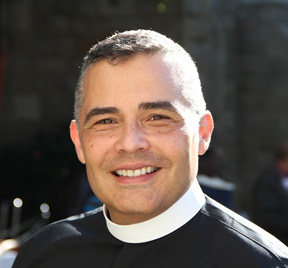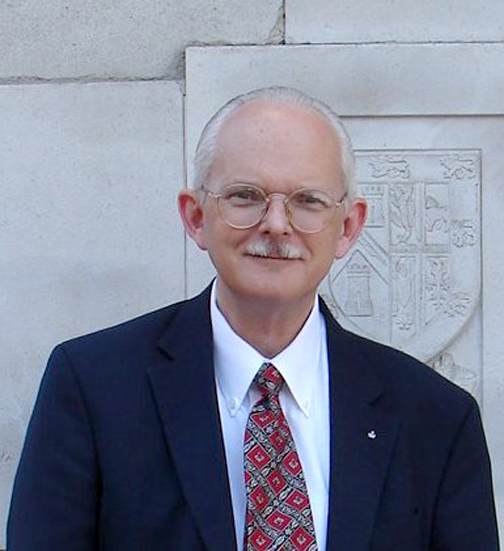QUESTION: I’ve been dating a man for three years. From the beginning, I knew he wasn’t into spirituality like I am. We’ve just agreed to disagree and seldom, if ever, brought the subject up. Except for that one thing, we’re compatible in our other interests. Now he has asked me to marry him. I care deeply for this man, but I believe it would be in both of our best interests to break up. Each of us, at some point in our lives, want children. He has said that if we married, he’d rather our children not go to church. That doesn’t set well with me and I told him so. He said rather flippantly that we can work it out.
I think we must work it out now or go our separate ways. He knows I’m writing this message to Spiritually Speaking.
Could you please help us put some light on this subject?
~Uncertain
To A Loving Uncertain Couple,
The fact that you are both seeking some way to explore that “one” thing that you have not explored deeply yet – your different perspectives on spirituality – tells me that you both care about each other.
When couples approach me seeking marriage, the very first thing that I recommend is for them to see a marriage or couples counselor. Marriage is such an endeavor that to last for a lifetime, as I think it is the original intent, it needs to have a solid foundation to build upon.
Yes, it is very important that couples agree on items like management of their finances, whether to have children and how they would raise them, and how they’d support each other to be their very best, among other things. It is equally important that couples understand each other’s spiritual paths, and that they have tools to communicate effectively, and tools to handle conflict when it arises.
Yes, you have different perspectives on spirituality, and I invite you to consider seeking the professional help of a counselor to explore this matter before you make a final decision. I also invite you to enter this journey of exploring your spiritual perspectives with a sense of curiosity and a willingness to learn and understand each other in that area of your life. That learning should not be intended to “persuade” the other to change his/her beliefs because that would mean to compromise, an act that carries a negative connotation in romantic relationships.
One of my best friends is a Christian who married someone with a Jewish background. Children came and I asked my friend in which religion they had decided to raise their children. She told me “We are going to expose them to both religions so that when they are adults they can make their own decision.” To me, their approach is a no compromising path in this pluralistic world because in doing so they did not leave aside their beliefs, and they are allowing their children to make their own decisions when they are mature enough to do so.
I like what the poet Rumi says about love: “This is love: to cause a hundred veils to fall each moment.” The difference that you have in front of you is one of those hundred veils that has fallen on your love life and before you decide to remove the veil (maybe out of the fear to lose who you are and compromise), I invite you to explore together and, with professional help, what this veil in your relationship means. Only then you’d be able to make a decision out of love, and not out of fear.
I wish you both the very best.
Rev. Antonio Gallardo
agallardo@stlukeslacrescenta.org
Dear Uncertain,
First, I commend you for reaching out for support and guidance. It’s important to recognize that what we seek is “seeking us” and so I hope you’re open to what comes forward for you in this column.
The next thing I will say is that there is a difference between being spiritual and religious. One can be either or both and they have different meanings and practices. It is very common to align yourself with a religion, such as Christianity, Judaism, Buddhism, or whatever you were brought up with. And then as adults choose another path, if you no longer resonate with those teachings.
You could also consider yourself spiritual without following any religion or dogma. Spirituality for some people is the belief in something bigger than themselves and has nothing to do with a particular religious doctrine. I have counseled many couples that had different beliefs – including my own marriage. When we met I was practicing one religion and he another. Neither of us considered ourselves religious, but both of us felt very spiritual. That desire allowed us to find a place that we both resonated with, and that was Religious Science, in which we brought up our children.
There are many couples that compromise or accommodate their partners’ religion in the interest of their children. I would recommend you have a heart-to-heart discussion about what values you want to bring your children up with. What traits or beliefs do you want them to adopt? What kind of people do you want them to grow up to be? I think you will find that you’ll both be on the same page and then it’s just a matter of agreeing on the best path forward.
Now, my point here is not that you change your religious beliefs or try to change those of your fiancé’s but to understand that people can change and oftentimes they do. They can come to a greater awareness of their underlying beliefs and decide to shed those that no longer serve and adopt those that do. That could mean being willing to consider a different spiritual path for child rearing than the one you’re currently on. That is how it unfolded in my marriage.
Lastly, be completely honest with yourself about this partnership. The most successful marriages aren’t those that have everything in common, but those that have learned how to deal with those differences from the highest, most loving place. There will be many more undiscovered differences that you may encounter on your marriage journey. As long as you have a caring mindset, an open heart and peaceful disposition, you’ll be fully equipped to handle them!
Sending the highest light & love,
Rev. Dr. Ellen Faith Contente
efcontente@gmail.com
QUESTION: Several years ago, I became interested in genealogy and have spent a considerable amount of time tracing my family’s history. I then began researching my husband’s family, with his blessing, I might add. I came up with what could be considered “a skeleton in the closet” when I found that my in-laws were married two months before he was born. When I first met them something was said about them not celebrating anniversaries and we let it go at that. I know my husband doesn’t know and I don’t want to tell him. I believe he doesn’t really need that information. His parents are wonderful and have raised a nice family.
Yet I feel I’m living a lie. He’s not interested in my genealogy finds and I rarely discuss them with them. Is it okay not to tell him?
~ Undecided
Dear Undecided,
Your issue is a tricky one requiring some analysis. This could be seen as an honesty issue when in fact the greater item on this list of issues can only be seen as something we call in our tradition, “Shalom Bayit,” or “Peace in the home.”
This “skeleton” was created a long time ago. It obviously is something that your in-laws have hidden as, in their day, this was a scandal that people had shame over. Today we accept this practice, out in the open. I have personally performed marriage ceremony for couples where the bride is visibly pregnant and the entire group celebrates the upcoming blessed event!
Your husband does not need to know this. It is something that you found out in an extraordinary way. As you said, he isn’t even interested in your findings, even about his own family. I am wondering if your in-laws know of your research and have gotten worried that you will find out.
“His wonderful parents” who “have raised a nice family” made a decision long ago to forgo anniversary celebrations in order to let sleeping dogs lie. It is not up to you to pierce this silence that has existed long before you came into the picture.
If you think about it, I bet you could come up with a couple of other things you haven’t mentioned to your husband about yourself, your family or something that occurred over the course of your lifetime that would be confusing, vexing or bring your husband some discomfort. This is one of those. You must not tell him. You must bear the burden of this skeleton yourself.
Your husband was conceived in love. That is clear. The legal unvarnished truth is not even relevant at this point in your lives.
Rabbi Janet Bieber
jbieber1155@aol.com
Dear Undecided,
In my opinion, you are making the right choice keeping that knowledge strictly to yourself. You shouldn’t choose to see that secret as living a lie. Why? Well, it’s really not your story (even though you are married to your husband). It’s really your husband’s story and his parents’ story. While it is true that back in its day this revelation would have been considered somewhat of a scandal, with the variety in today’s life styles, it’s pretty tame stuff. Besides, even if it was in the nick of time, your husband is still considered as having a legitimate birth.
If it is of any comfort, there were many so-called “premature births” back in those days among recently married couples. Your in-laws were not alone by any means in what happened to them.
In any event, because of the shame factor back then, your in-laws decided not to talk about it and (as you point out) your husband has shown no interest in sharing in the discoveries of your hobby.
The question then you need to ask yourself is what would happen if you did decide to share it? What is the point of anyone beside yourself knowing this? Granted, it makes for a juicy piece of family gossip. But there is no evil here that demands exposure and accountability. Are you prepared to be responsible for, and even have to deal with, the potential emotional trauma and suffering it could cause? What if your husband did not take this well and confronted his parents? Where, in light of how wonderful these people are and the good job they did in providing for and raising their family since their “mistake,” is the goodness in having the power to pull the scandal rabbit out of the hat and possibly affect their happiness going forward?
In my opinion, the potential for causing needless and unnecessary suffering, pain and shame in others with this revelation far outweighs any potential for good; and I think you see that based on your comments.
Instead of seeing/feeling yourself keeping this knowledge as “living a lie,” see it as living love and your silence as being an act of love. Because that is what your silence really would be. How so? No one gets through life without messing it up. We all stumble, and we all manage to shame ourselves. You cannot read the life of Jesus and not see that He understood that perfectly about what it is to be human. And when confronted with cases of what His society regarded as sinful and scandalous (e.g. the story of the adulteress), he would not pass condemnation or judgment. But he was always quick to tell others they were forgiven and released from the mental burden of their mistakes (sin). For Jesus, everyone could have a new beginning.
I think Jesus is the perfect example to follow here. His actions perfectly illustrate the hallmarks of love, or what I call the divine trinity of love, which are courtesy, caring and compassion. This “family revelation” is now your secret to keep. It is an act of love to do so. It is a genuine act of caring for the feelings and continued happiness of your husband and in-laws. But above all, it is an act of courtesy, an act of respect and even an incredible act of kindness for and towards another. It would be, to be blunt, an act of divine mercy or compassion on your part. So even though, at one point in their life, your in-laws stumbled you choose not to do anything now to shame them for it. But allow them to continue, maintain, and hold on to whatever little bit of dignity we humans manage to scrape out of our experiences in life.
Anthony Kelson, RScP
anthony@apkelson.com




